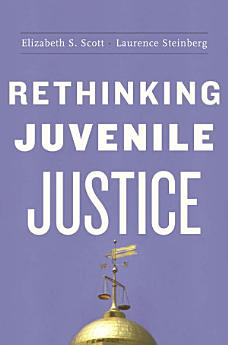關於這本電子書
What should we do with teenagers who commit crimes? Are they children whose offenses are the result of immaturity and circumstances, or are they in fact criminals?
“Adult time for adult crime” has been the justice system’s mantra for the last twenty years. But locking up so many young people puts a strain on state budgets—and ironically, the evidence suggests it ultimately increases crime.
In this bold book, two leading scholars in law and adolescent development offer a comprehensive and pragmatic way forward. They argue that juvenile justice should be grounded in the best available psychological science, which shows that adolescence is a distinctive state of cognitive and emotional development. Although adolescents are not children, they are also not fully responsible adults.
Elizabeth Scott and Laurence Steinberg outline a new developmental model of juvenile justice that recognizes adolescents’ immaturity but also holds them accountable. Developmentally based laws and policies would make it possible for young people who have committed crimes to grow into responsible adults, rather than career criminals, and would lighten the present burden on the legal and prison systems. In the end, this model would better serve the interests of justice, and it would also be less wasteful of money and lives than the harsh and ineffective policies of the last generation.
“Adult time for adult crime” has been the justice system’s mantra for the last twenty years. But locking up so many young people puts a strain on state budgets—and ironically, the evidence suggests it ultimately increases crime.
In this bold book, two leading scholars in law and adolescent development offer a comprehensive and pragmatic way forward. They argue that juvenile justice should be grounded in the best available psychological science, which shows that adolescence is a distinctive state of cognitive and emotional development. Although adolescents are not children, they are also not fully responsible adults.
Elizabeth Scott and Laurence Steinberg outline a new developmental model of juvenile justice that recognizes adolescents’ immaturity but also holds them accountable. Developmentally based laws and policies would make it possible for young people who have committed crimes to grow into responsible adults, rather than career criminals, and would lighten the present burden on the legal and prison systems. In the end, this model would better serve the interests of justice, and it would also be less wasteful of money and lives than the harsh and ineffective policies of the last generation.
為這本電子書評分
請分享你的寶貴意見。
閱讀資訊
智能手機和平板電腦
手提電腦和電腦
你可以使用電腦的網絡瀏覽器聆聽在 Google Play 上購買的有聲書。
電子書閱讀器及其他裝置
如要在 Kobo 等電子墨水裝置上閱覽書籍,你需要下載檔案並傳輸到你的裝置。請按照說明中心的詳細指示,將檔案傳輸到支援的電子書閱讀器。








